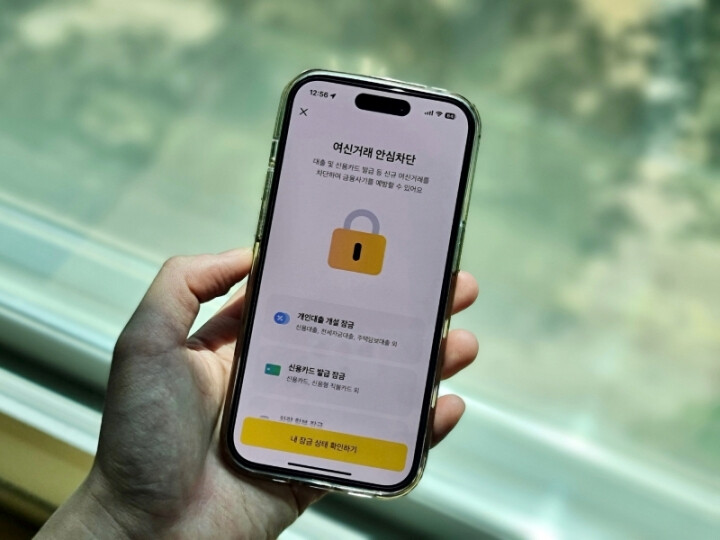
The recent security breach at SK Telecom, which compromised the unique subscriber identity module (USIM) identification numbers and authentication keys of its users, has sent a stark reminder of the escalating risks of digital identity theft. This incident underscores the critical need for financial consumers to proactively adopt measures that safeguard their personal information and financial assets in an increasingly interconnected and digitally driven world. The potential for this leaked information to be exploited for fraudulent activities, including the creation of cloned mobile devices and the perpetration of financial scams through identity theft, necessitates immediate and comprehensive action on the part of individuals.
The financial industry and cybersecurity experts are urging consumers to leverage a range of services designed to prevent unauthorized access to their accounts and the fraudulent acquisition of financial products in their name. These services act as crucial layers of defense against the ever-evolving tactics of cybercriminals.
One fundamental security measure that all financial consumers should consider is the Non-Face-to-Face Account Opening Prevention Service. This invaluable tool provides a blanket block on the remote opening of various deposit accounts, including checking accounts and Cash Management Accounts (CMAs), across the entire spectrum of financial institutions, encompassing banks, securities firms, and savings banks. By activating this service, individuals can effectively thwart attempts by malicious actors who may have obtained their personal information – through data breaches, phishing scams, or even the loss of physical identification – from establishing accounts under their identity without their explicit consent. Applying for this service is typically straightforward, often accessible through a financial institution's mobile or internet banking platform, or by visiting a physical branch. However, it's important to note that deactivation usually requires an in-person visit to a branch, adding an extra layer of security against unauthorized removal of the block.
Beyond account openings, the Credit Transaction Security Blocking Service offers another vital layer of protection. This service extends the proactive blocking mechanism to a broader range of financial transactions involving credit. By subscribing to this, consumers can prevent the unauthorized acquisition of loans, credit cards, and installment purchase agreements initiated under their name at various financial entities, including banks, insurance companies, securities firms, and credit card companies. This blocking applies to both in-person and remote transactions, providing comprehensive coverage. Once activated, even the legitimate account holder is prevented from initiating new credit transactions until the service is explicitly deactivated. Application typically requires a visit to a financial institution branch with valid identification, although some banks are now offering the convenience of mobile banking applications for this service.
In the context of the SK Telecom USIM hacking incident, the importance of the Mobile Service Identity Theft Prevention Service cannot be overstated. This service, often accessible through widely used applications like KakaoBank and PASS, empowers individuals to block unauthorized mobile service activations under their name. This includes preventing new registrations, number porting, and changes of ownership. Furthermore, these services often provide users with real-time visibility into the mobile devices currently registered under their identity, offering an additional layer of monitoring and control. Many also offer the option to set activation restrictions across all mobile network operators, providing a comprehensive shield against fraudulent mobile activity.
The recent surge in sophisticated cyberattacks, including SIM swapping – a technique where criminals fraudulently transfer a victim's phone number to a SIM card they control – underscores the urgency for these protective measures. Once in control of a victim's phone number, fraudsters can often bypass two-factor authentication protocols that rely on SMS-based verification, granting them access to a wide range of sensitive accounts, including banking, email, and social media. The information compromised in the SK Telecom breach could potentially be leveraged to facilitate such attacks, making the adoption of these preventative services all the more critical.
Financial institutions and cybersecurity experts are unanimous in their recommendation: in an era marked by increasingly frequent and sophisticated data breaches, financial consumers must take personal responsibility for safeguarding their digital identities and financial well-being. Proactively enrolling in these pre-emptive blocking services is no longer a mere suggestion but a necessity. As non-face-to-face transactions and mobile service activations become deeply ingrained in our daily lives, cultivating a proactive security mindset and taking concrete steps to stay ahead of potential threats is paramount. By embracing these protective measures, individuals can significantly reduce their vulnerability to identity theft and the potentially devastating financial consequences that can ensue. The key takeaway is clear: in the digital age, vigilance and proactive security measures are the most potent defenses against the ever-present threat of cybercrime.
[Copyright (c) Global Economic Times. All Rights Reserved.]






























